
Beyond the Books: Why Leadership Succession Planning Is a Promise Worth Keeping.
How Accreditation Supports Everyone's Investment.
Accreditation serves as a valuable partner in protecting student and stakeholder investment. Whether through regional accreditors for higher education institutions, state education boards for K-12 schools, specialized programmatic accreditors, or industry certification bodies, these organizations help ensure that institutions maintain quality and sustainability.
Accreditors ask important questions on behalf of students and families:
Is this institution financially stable and well-managed?
Does it maintain consistent educational quality?
Are its processes documented and sustainable?
Can it demonstrate continuous improvement?
Does it have governance systems robust enough to maintain standards as leaders naturally change?
Rather than viewing accreditation as a compliance burden, forward-thinking institutions recognize it as a framework for building the kind of operational excellence that truly serves students and families. Recent accreditation standards across educational sectors helpfully emphasize:
Institutional sustainability and thoughtful risk management - This means having systems in place so that quality assurance processes continue smoothly across leadership transitions. For a private elementary school, this ensures the educational approach families chose remains consistent. For colleges, it means students can trust their degree will maintain its accredited status. For corporate training programs, it means certification credentials hold their industry value.
Documented processes that support continuity - When curriculum management, student services operations, library systems, enrollment procedures, and financial operations exist in clear, accessible documentation rather than only in individual memories, everyone benefits. New leaders can hit the ground running, stakeholders experience consistent service, and institutional knowledge is preserved as an asset.
Thoughtful leadership succession planning - Institutions that identify and develop talent, create continuity protocols, and build succession readiness demonstrate respect for the multi-year commitments students and families make. This isn't about distrusting current leaders—it's about honoring the trust stakeholders place in the institution itself.
Evidence of continuous improvement - When assessment data, quality enhancement initiatives, and strategic planning are maintained across leadership changes, students benefit from institutional learning rather than experiencing "starting over" with each new leader.
Including diverse stakeholders in governance and oversight ensures that institutions hear important perspectives and remain accountable to their core mission: serving students and communities effectively.
When institutions embrace these principles proactively, they build stronger organizations that better serve everyone involved.

For CEOs, COOs, and Operational Leaders: Trust Is a Strategic Asset
The outcome is predictable: the organization remains stuck—not due to poor leadership, but due to incomplete execution.
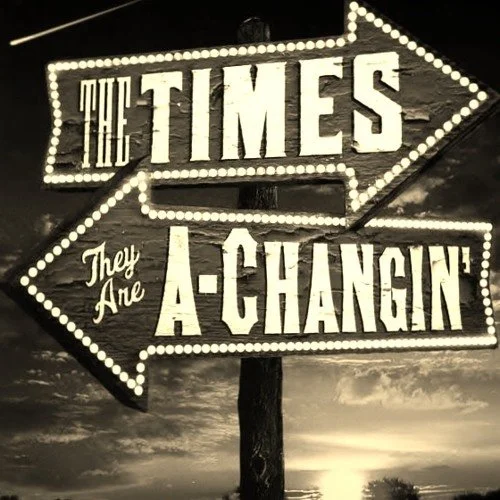
The Current Crisis: When Everyone Can Generate Content, Who Verifies It?
Building the AI-Ready Library Team
As institutions navigate AI integration, here's what actually works:
Invest in expertise, not just training. AI literacy workshops have limited impact without librarians who can model expert practice in real situations. Prioritize positions that require technological fluency and cross-sector experience.
Rethink hiring criteria. A librarian with five years in tech brings AI expertise that traditional academic paths don't provide. Value diverse career trajectories—someone who built information systems in the private sector may be exactly who you need.
Give librarians time to develop real proficiency. Surface-level AI familiarity isn't enough. Provide professional development budgets, course releases, or dedicated innovation time for deep engagement with emerging tools.
Elevate librarians to strategic partners. Their perspective on information quality, user needs, and system evaluation should inform institutional AI decisions at the highest levels—not just implement policies made elsewhere.
Remember: this transcends AI. The skills that make librarians valuable now—critical evaluation, cross-domain expertise, technological fluency paired with humanistic values—will remain essential regardless of what technology emerges next.

How Libraries Can Lead Through Higher Education's Major Shifts in 2025
The global AI in education market was valued at $3.6 billion last year and is projected to reach $73.7 billion by 2033, signaling a fundamental transformation in how learning happens. Libraries must navigate the ethical implications while harnessing AI's potential to enhance services.
Forward-thinking library and learning resource centers are already integrating AI tools to:
Personalize research assistance and resource recommendations
Streamline administrative tasks like cataloging and collection management
Provide 24/7 chat support for basic reference questions
Analyze usage patterns to inform collection development decisions
However, this technological shift also demands that libraries take a leadership role in promoting information literacy, critical thinking, and ethical AI use—core competencies that become even more vital in an AI-augmented learning environment.
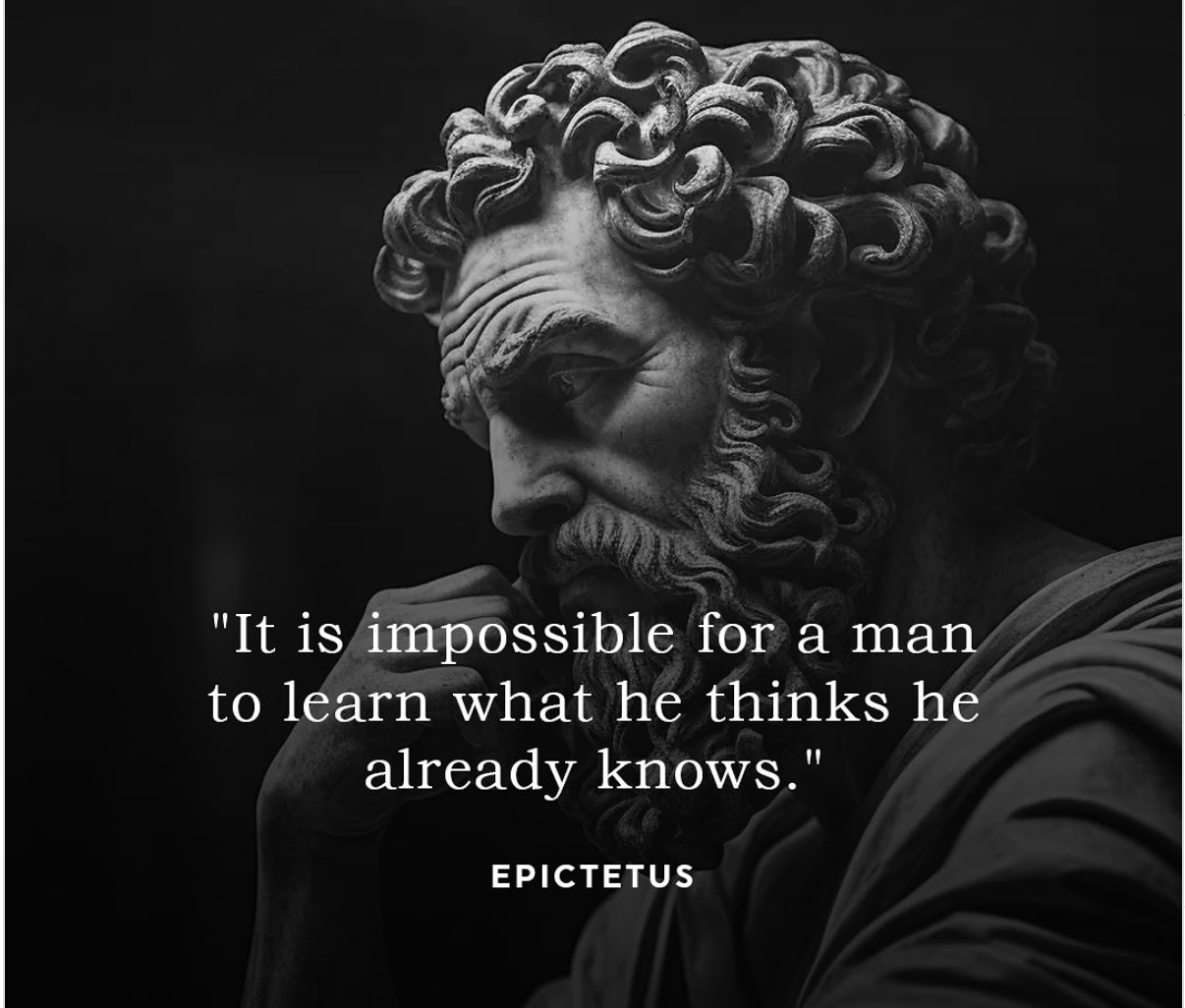
Meeting Students Where They Are: Learning Styles, Equity, and Critical Thinking in Higher Education
As the philosopher Epictetus taught, "It is impossible for a man to learn what he thinks he already knows." Sometimes our students don't even know what questions to ask because they don't know what they don't know. Experienced educators recognize these moments and create spaces where students feel safe admitting uncertainty.

The Hidden Accreditation Landmine: Why Library Compliance Failures Derail Otherwise Strong Reviews
The Hidden Accreditation Landmine: Why Library Compliance Failures Derail Otherwise Strong Reviews
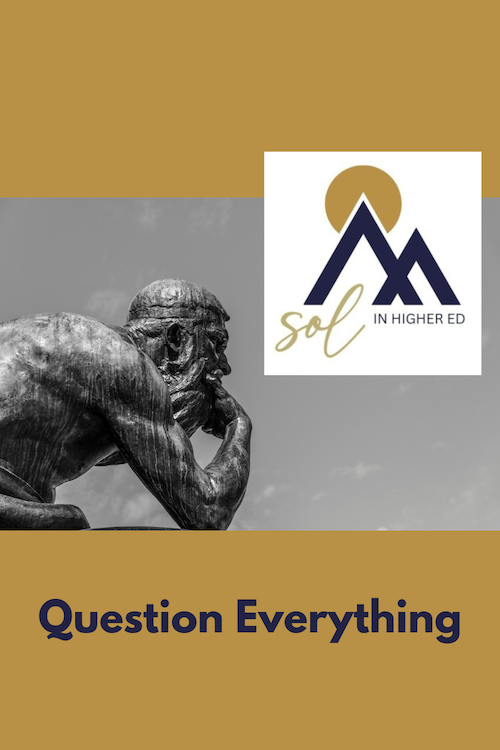
Understanding Information Bias in Academic Research: A Critical Framework for Credibility Assessment
The reality is that no information source exists in a vacuum. Every database, search engine, and digital platform operates within economic, political, and cultural contexts that influence what information becomes visible, how it's presented, and what remains hidden from view. Rather than seeking perfectly neutral sources—which don't exist—we must develop sophisticated approaches to understanding and working with these inherent limitations.

The Power of Clear Communication: Why Every Organization Needs Cohesive Strategies
💡 Clear communication isn’t just a skill—it’s a system.
Whether in education, healthcare, business, or nonprofits, communication determines culture. When channels are broken, unclear, or inconsistent, the ripple effect is felt everywhere:
🔹 Teams get mixed messages
🔹 Clients, students, or customers lose trust
🔹 Leaders spend more time reacting than leading
But when communication is intentional and cohesive, the opposite happens—clarity builds alignment, and alignment fuels success.
At SOL in Higher Ed, we work with organizations across sectors to:
✔ Audit communication funnels to spot breakdowns
✔ Simplify platforms and reduce noise
✔ Clarify ownership and timing of key messages
✔ Build two-way dialogue, not just one-way announcements
✔ Train teams for consistency and cohesion
👉 With an outside perspective, we help leaders see where communication systems need to be simplified, streamlined, or strengthened.
As founder, Natasa Hogue brings expertise rooted in higher education but applicable to all industries—helping organizations turn complexity into clarity.
✨ Because when communication is strong, the ripple effect is powerful: teams align, leaders lead, and people thrive.
➡️ Let’s talk about your organization’s communication systems. DM me or connect to start the conversation.
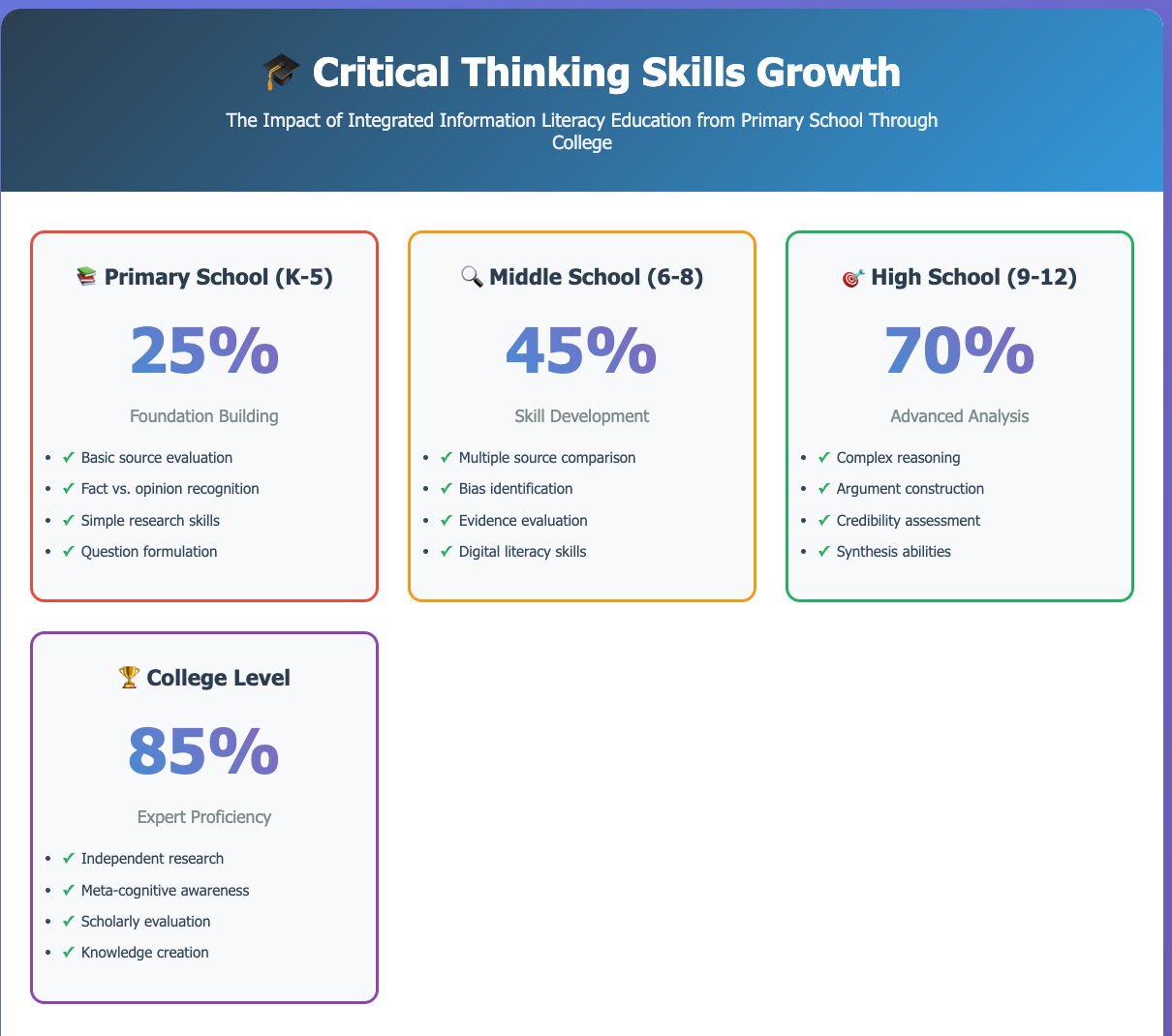
Building Critical Thinkers: The Power of Integrated Information Literacy Education
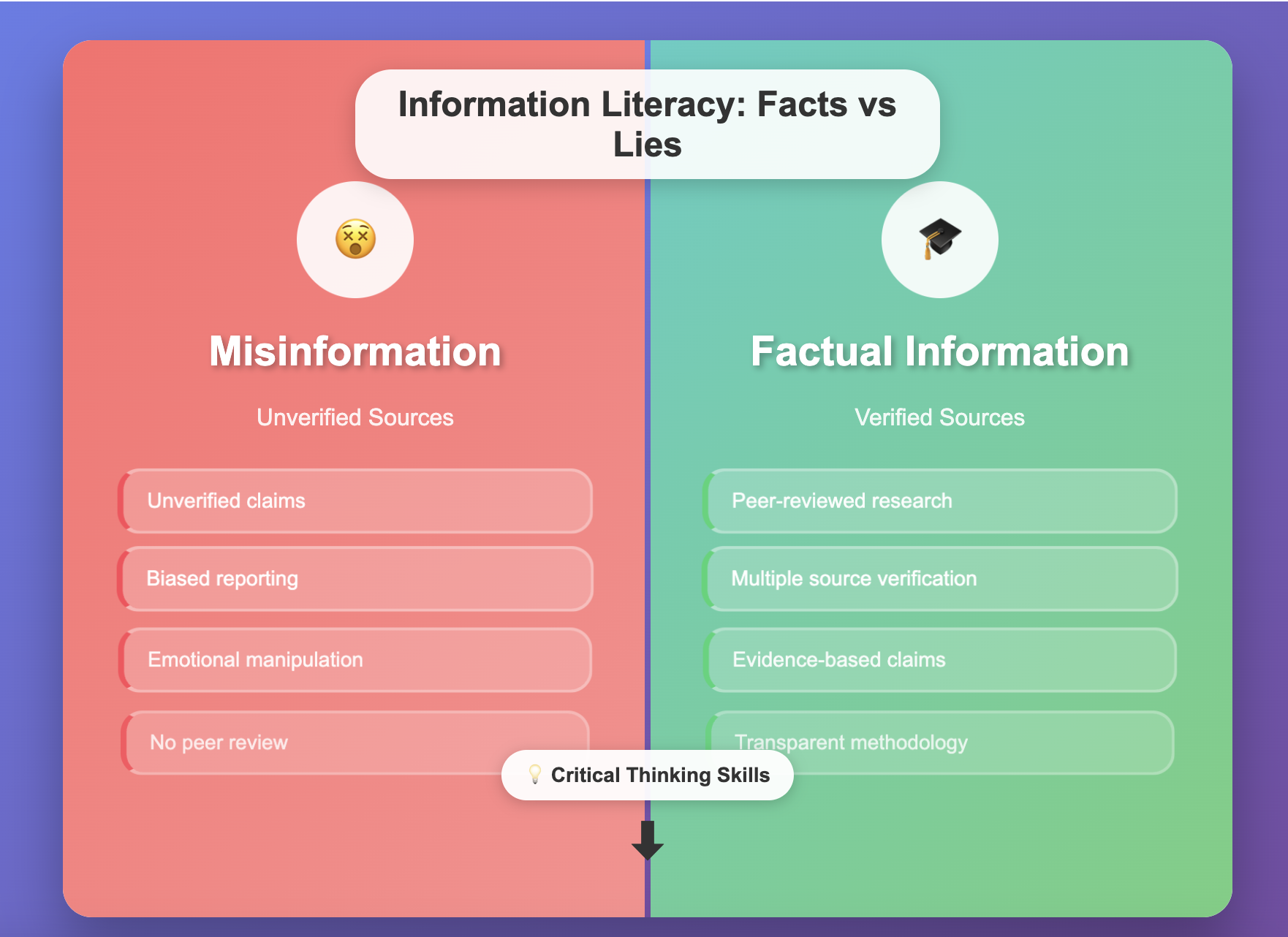
Information Literacy: The Missing Foundation of Modern Education—Why Critical Thinking and Information Literacy Are No Longer Optional Skills
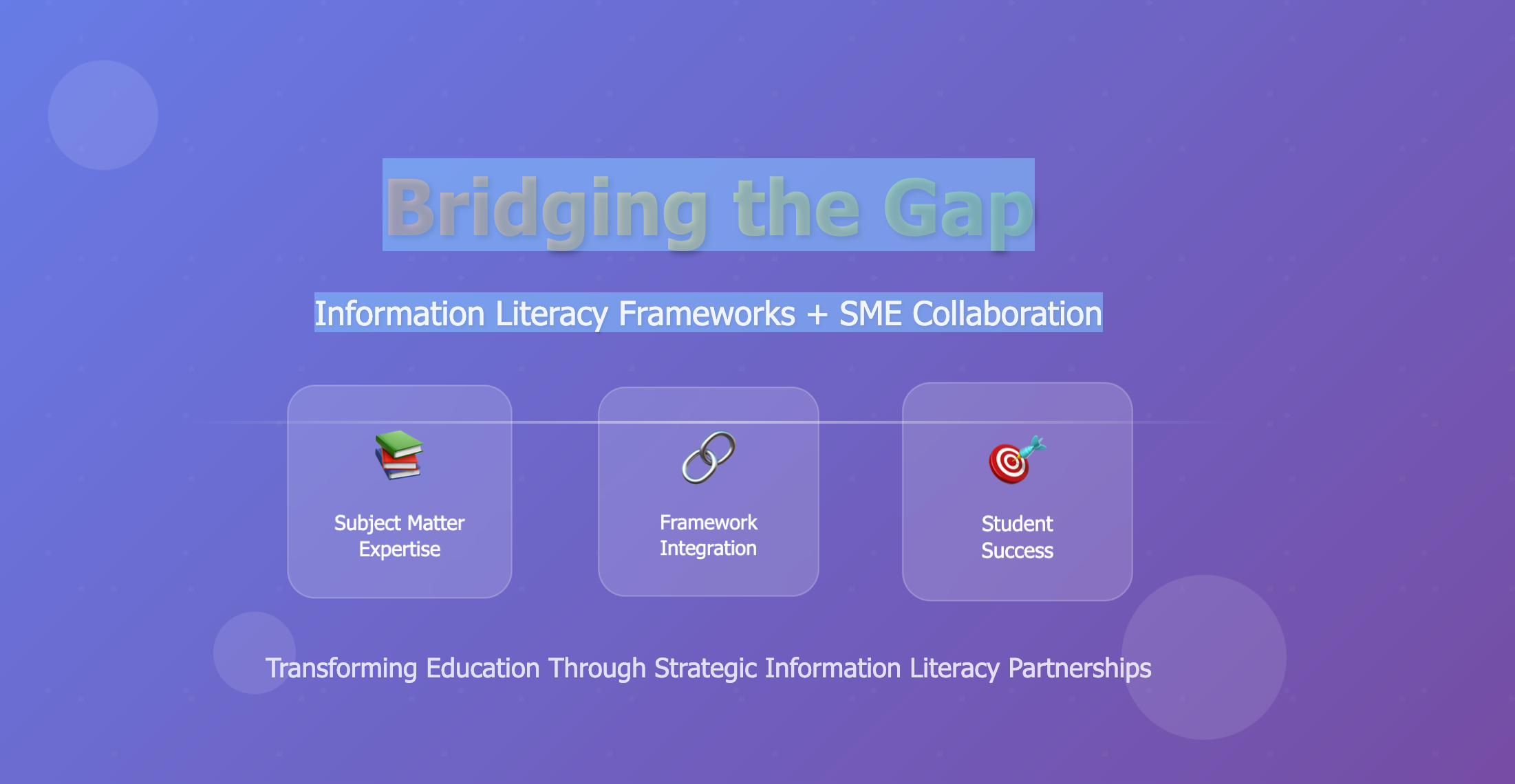
Bridging the Gap: How Information Literacy Frameworks Can Transform SME-Student Learning Partnerships
Information literacy frameworks provide powerful tools for enhancing student learning, but their successful implementation requires thoughtful collaboration between information professionals and subject matter experts. By serving as translators, curriculum consultants, and instructional partners, information professionals can help SMEs create learning experiences that develop both disciplinary expertise and essential information skills.
The investment in such collaboration pays dividends not only in improved student performance but also in creating more engaged, critical thinkers who are prepared for lifelong learning in an information-rich world. As we continue to navigate an increasingly complex information landscape, these partnerships become not just beneficial but essential for student success.
The key lies in recognizing that information literacy and disciplinary learning are not competing priorities but complementary aspects of comprehensive education. When SMEs and information professionals work together to align learning objectives with information literacy skills, students develop the sophisticated thinking abilities they need to succeed in their chosen fields and as informed citizens.
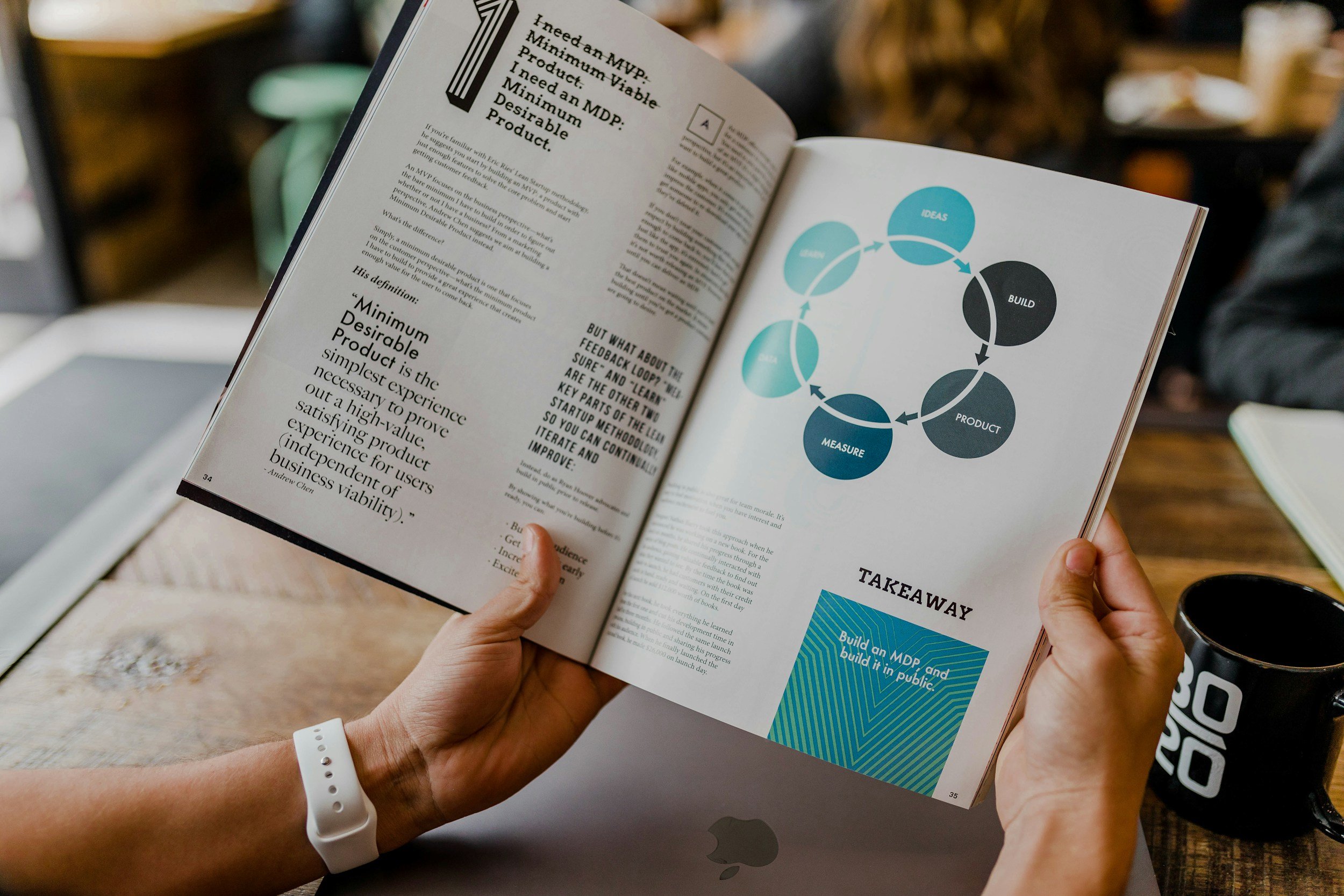
Librarians As Sales Pros (Yes, Really)
When most people hear the word “librarian,” they picture someone helping you find books or shushing noisy teens in a public library. But if you step into the world of academic or specialized libraries, you’ll find that many librarians are actually doing something a lot like sales. Seriously.
These librarians aren’t just recommending a good read. They are product experts, marketing strategists, tech trainers, and yes, even sales reps — though they might not call themselves that.
Think about a librarian at a university or a medical research center. They aren’t just pointing to a database and walking away. They’re introducing professors or doctors to resources they may have never heard of. They explain what those tools can do, how they compare to others, how they save time or support grant writing, and why they are worth the investment. That sounds a whole lot like a product consultant, doesn’t it?
A lot of these librarians are even involved in the sales funnel, especially when it comes to vendor tools or digital products that the library subscribes to on behalf of a larger institution. Sometimes the librarian is the buyer, sometimes the influencer, and sometimes the one out there selling the value of a product internally — to department heads, faculty, or admin decision-makers. They’ve got to be persuasive. They’ve got to make the case.
And let’s not forget marketing. Specialized librarians often create flyers, write emails, post on social, run workshops, or give presentations — all to raise awareness and boost usage of tools the library already pays for. If people don’t use them, they disappear. It’s classic marketing with a side of advocacy. If that isn’t sales adjacent, I don’t know what is.
In corporate settings, it can go even further. A librarian might work for a tech company or research firm and spend their time training clients, onboarding teams, answering product questions, and showcasing new features. They’re teaching people how to get the most out of a product the company makes. That’s education, but it’s also retention, satisfaction, and upselling — the stuff that keeps business flowing.
So while librarians may not carry a sales quota or cold-call clients, make no mistake. Many of them are deep in the business of selling. They just happen to do it with a service-first mindset, a deep knowledge base, and a whole lot of finesse.
If you’ve ever thought of librarians as behind-the-scenes folks who quietly shelve books, think again. Some of them are out there pitching ideas, winning hearts, and driving decisions — one “let me show you something cool” at a time.

Using AI for First-Line Student Services in Libraries: Meeting Needs, Building Bridges
To achieve these outcomes, a few critical factors must be in place:
High-quality programming: AI must be trained on library-specific resources and common questions unique to each institution.
Clear escalation paths: Users should easily know when and how to transition to live help.
Ongoing updates: AI systems must evolve with new library services, database changes, and emerging user needs.
Human collaboration: Librarians should be part of the AI design process to ensure it reflects real-world service expertise and user-centered thinking.
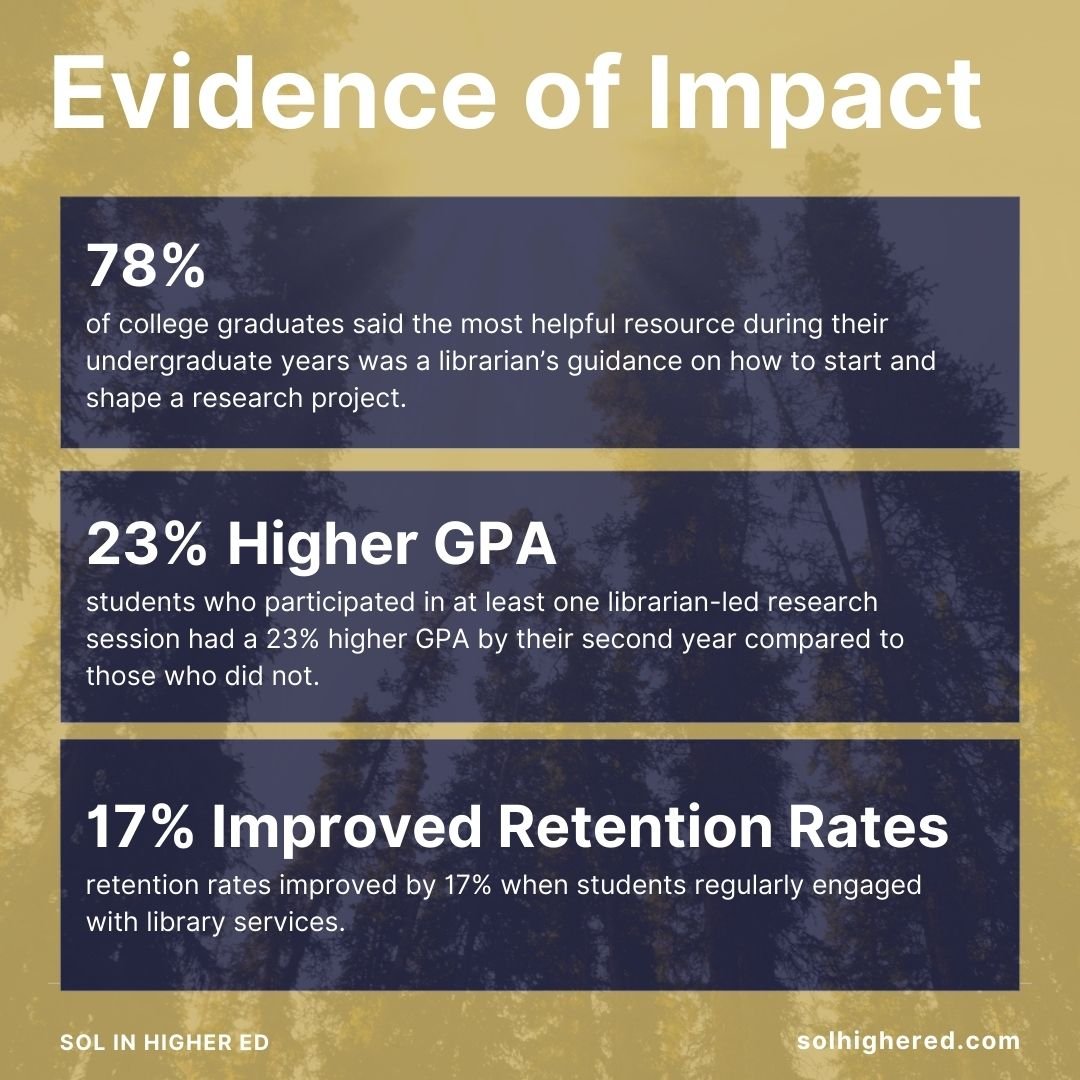
Access Does Not Equal Understanding.
In today’s digital age, students have access to an overwhelming amount of information. But access does not equal understanding. So, why are librarians essential in teaching research skills at the college level? And how does their instruction influence student success?
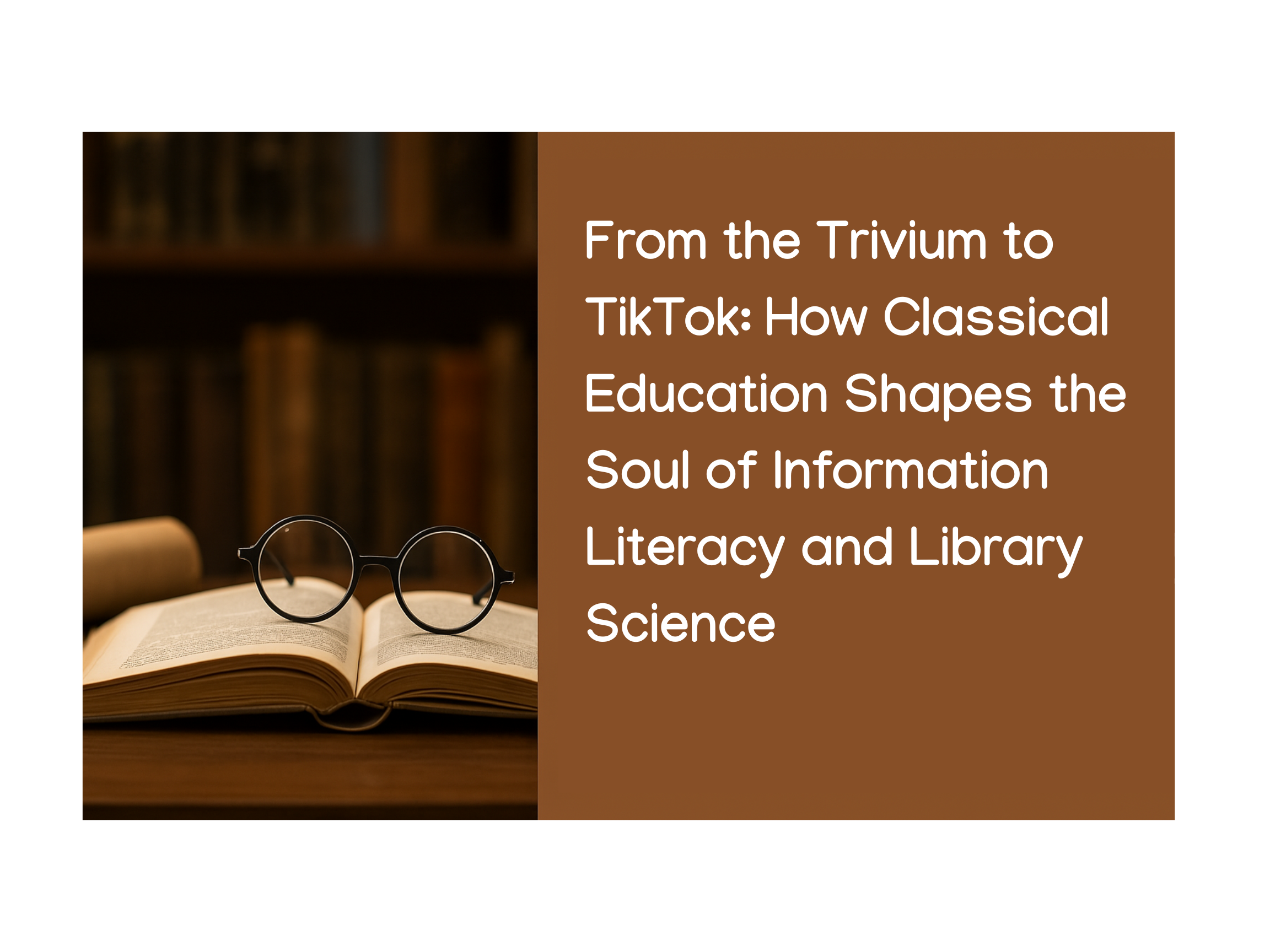
From the Trivium to TikTok: How Classical Education Shapes the Soul of Information Literacy and Library Science
As a lover of classical education and someone passionate about library science, I often find myself standing at the crossroads of the old and the new—between Socratic dialogues and digital databases, between Aristotle and the ACRL Framework for Information Literacy. What surprises me most is how often these two seemingly different worlds speak the same language.
At the heart of classical education is the Trivium—grammar, logic, and rhetoric—a time-tested framework for forming wise, articulate, and discerning learners. In library science, especially in the teaching of information literacy, we too seek to form individuals who are not just consumers of information, but curators, critics, and creators. The synergy between these two approaches is not only striking—it’s essential.

What Is a Framework, Really? And How Librarians Can Collaborate to Enhance Course Content
The key to successful integration is visibility. Embedding library resources in an LMS should not be an afterthought; rather, it should be strategically placed within course modules, assignments, and discussion boards. This proactive approach helps students develop strong research habits and enhances their overall learning experience.
By working together, librarians, SMEs, and curriculum developers can create a seamless, resource-rich learning environment that enhances engagement and academic success. A well-structured framework ensures that these collaborations yield meaningful results—leveraging existing library resources to their full potential while fostering a culture of information literacy and critical thinking.

Ethical AI Use in Research: The Role of Librarians in Closing the Information Literacy Gap
AI-generated summaries are not neutral; they reflect the biases of their training data. Librarians can educate researchers on recognizing these biases and cross-checking AI-generated insights with authoritative sources.

Advanced Digital Research Methods for PhD-Level Scholars
For PhD researchers, the strategic use of digital research tools and methodologies is not merely a convenience but a necessity. By integrating advanced search techniques, leveraging specialized academic databases, and utilizing robust citation management software, scholars can enhance the efficiency, reliability, and impact of their research. Understanding and applying these tools is fundamental to navigating the complexities of contemporary academic inquiry, ensuring that research is both comprehensive and credible.
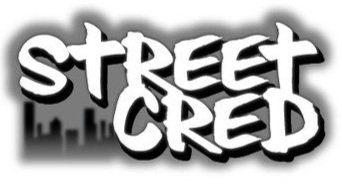
Bridging Critical Thinking and Digital Literacy: The Role of Librarians in Teaching Research Skills
By integrating research skills into education, librarians help individuals develop habits that ensure their work is credible and well-informed. Whether it's an academic paper, a professional report, or an online article, the ability to critically evaluate sources, cite information correctly, and present factual content is invaluable in any field.
Librarians are educators, mentors, and advocates for information literacy. As the digital world continues to evolve, their role in bridging critical thinking and digital literacy remains essential in fostering an informed society. By investing in research education, we empower individuals to think critically, engage with reliable sources, and contribute meaningfully to the world of knowledge.
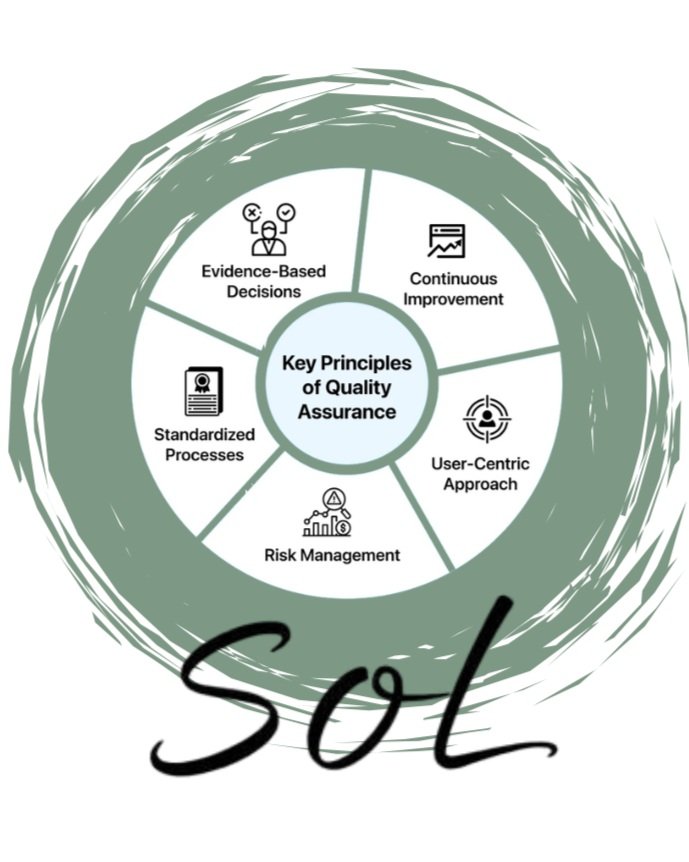
Quality Assurance: The Core of Accreditation
The Importance of Programmatic Accreditation: Ensuring Quality, Safety, and Industry Relevance
In the ever-evolving landscape of higher education, ensuring that academic programs maintain rigorous standards of quality, safety, and industry relevance is essential. Programmatic accreditation serves as a vital mechanism to uphold these standards, providing oversight to specific disciplines and ensuring that graduates are prepared to excel in their respective fields. Unlike institutional accreditation, which assesses an entire college or university, programmatic accreditation focuses on individual programs, examining their curricula, faculty, facilities, and student outcomes to ensure compliance with industry standards.

